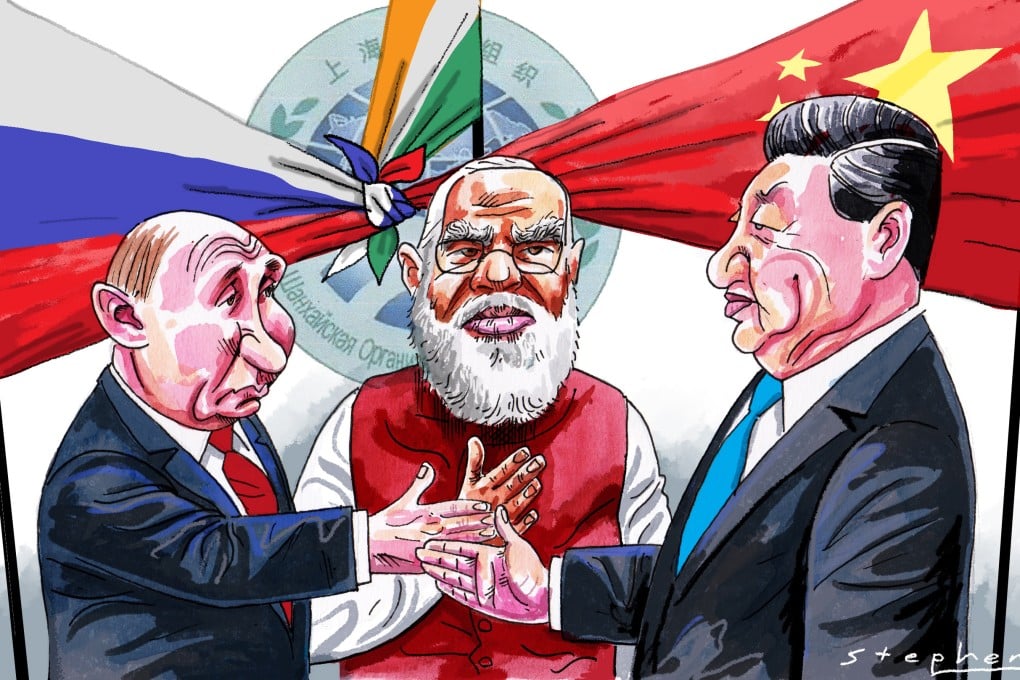Opinion | Tensions between China, India and Russia at Samarkhand summit cloud SCO’s effectiveness
- The summit drew interest over a rare trip outside China for Xi Jinping, bringing him, Vladimir Putin and Narendra Modi together
- The expressions of concern over Russia’s invasion of Ukraine and the lack of a Xi-Modi handshake show a petulance that augurs poorly for the SCO

In the opening section of the declaration, the leaders of the SCO member states – China, India, Kazakhstan, Kyrgyzstan, Pakistan, Russia, Tajikistan and Uzbekistan – noted the global changes the world is experiencing. They said: “The current system of international challenges and threats is becoming more complex, the situation in the world is dangerously degrading, existing local conflicts and crises are intensifying and new ones are emerging.”
The composition of the SCO is both significant and complex as its footprint covers almost 60 per cent of the Eurasian land mass, 40 per cent of the world’s population and more than 20 per cent global gross domestic product. While China and India are the demographic heavyweights – each with more than a billion citizens – the SCO has four nuclear weapon states in Russia, China, India and Pakistan.
